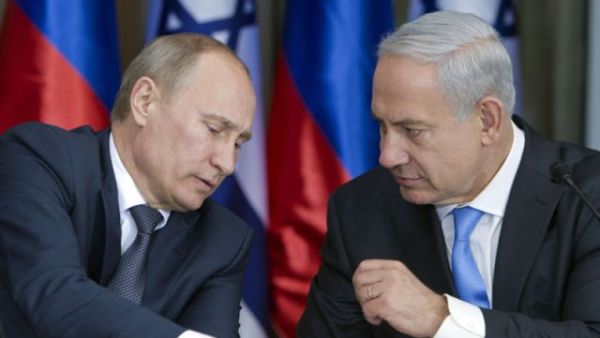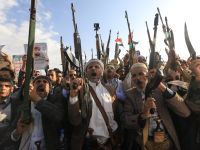Prime Minister Benjamin Netanyahu will travel to Moscow next week to meet Russian President Vladimir Putin and discuss Russia's recent troop deployments in Syria, the Prime Minister's Office announced on Wednesday.
This will be the first visit by Netanyahu to Moscow since November 2013.
According to the Prime Minister's Office, Netanyahu will speak to Putin about the threats Israel is facing from the transfer of state-of-the-art weaponry to Syria, and the danger that some of this weaponry will find its way into the hands of Hezbollah and other terrorist organizations.
The visit will come just a week before Netanyahu is scheduled to go to New York for the UN General Assembly meeting, and just over a month before an expected meeting with US President Barack Obama in Washington in early November. The trip also comes fast on the heels of his recent trips to London and Rome.
Moscow has come under increased international pressure to explain its moves in Syria, where the Kremlin has been supporting Syrian President Bashar Assad in a 4-1/2-year war.
On Monday, two US officials said Russia had positioned about a half dozen tanks at an airfield at the center of a military buildup in Syria and that the intentions of Moscow's latest deployment of heavy equipment were unclear.
Western officials and a Russian source said last week that Russia was sending an advanced anti-aircraft missile system to Syria in support of Assad.
The Western officials said the SA-22 system would be operated by Russian troops. A US official, who confirmed the information, said the system may be part of a Russian effort to bolster defenses at an airfield near Latakia, an Assad stronghold.
Even if Russians operated the missiles and kept them out of the hands of the Syrian army, the arrival of such an advanced anti-aircraft system could unsettle Israel, which in the past has reportedly bombed sophisticated arms it suspected were being handed to Hezbollah.
Worried about accidentally coming to blows with Russian reinforcements in Syria, Israeli officials said last week they were in contact with Moscow. But Israel also made clear it would continue its policy of stopping advanced arms reaching Hezbollah.
The United States is using Syrian airspace to lead a campaign of air strikes against Islamic State. A greater Russian presence raises the prospect of the Cold War superpower foes encountering each other on the battlefield.
Russia has said it will continue providing military supplies to Syria and that its assistance to the Syrian army is in line with international law.
The Syrian civil war, in which about 250,000 people have died, has caused nearly half of Syria's prewar population of 23 million to flee, with many thousands attempting to reach Europe.
By Herb Keinon








